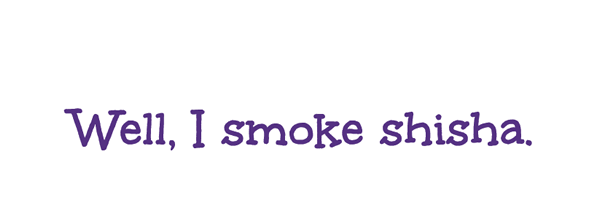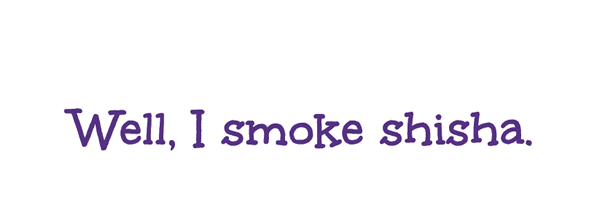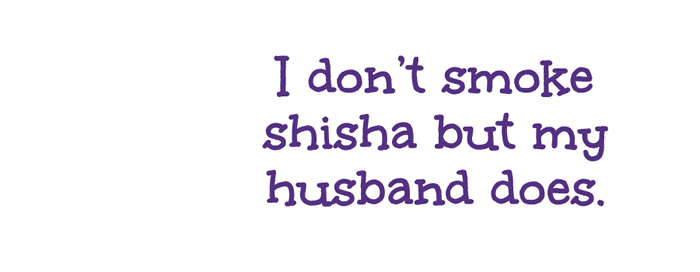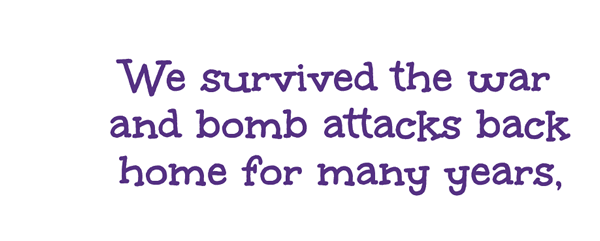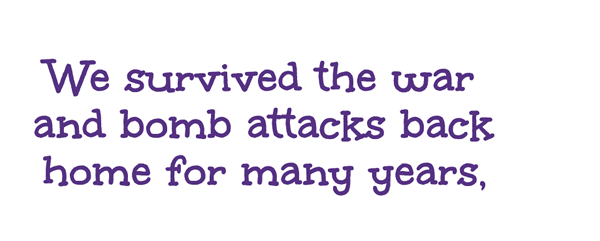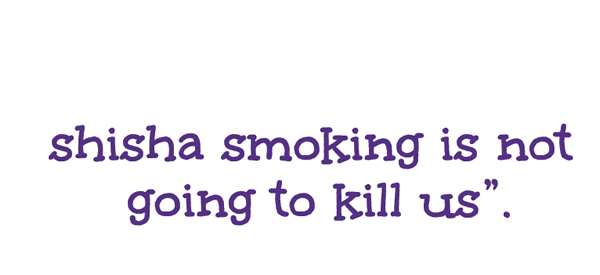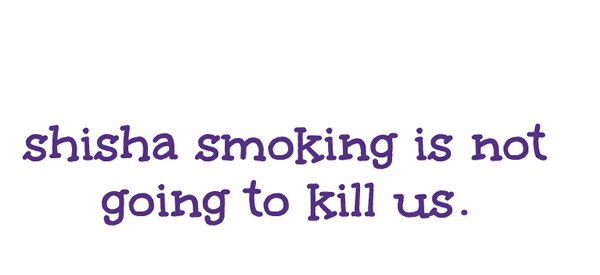Story #3
How would you go about talking through these issues with the group when not all the women are smokers?
How might you start this conversation?
How would you go about sharing this information?
You can inform the group that shisha smoking during pregnancy is harmful as it has negative health impacts on both the mother and baby.
By choosing this option, you are able to respect the sensitive information brought up by the participant and invite them to talk to you more about it afterwards. It also lets you share information about the harms of shisha smoking with the group. However, you will need to be sensitive to the one participant who smokes, to ensure she doesn’t feel singled out during the discussion.
You may like to take the opportunity later in the session or at the next session to talk about the harms of passive smoking, which exist for the rest of the group.
You could also consider discussing opportunities for engaging the women’s husbands in conversations about quitting shisha. You could offer to run a group session or talk one on one with them about the harms of shisha smoking and passive smoking. You could also provide the women with some written information to take home for their husbands.
This option gives you a chance to talk to the individual woman after the group about her shisha smoking and past trauma. It also lets you address the harms of passive smoking, which is relevant to all group participants.
You may like to take the opportunity later in the session or at the next session to talk about the dangers of women smoking shisha in pregnancy.
You could also talk to the group about sharing information with their husbands about the harms of shisha smoking and the health impacts of passive smoking on the whole family. You could invite the husbands to chat with you more about this or send home some information with the women about the harms of shisha smoking and how to access support to quit.
As an educator, your role is to provide women with advice and information to have a healthy pregnancy and a safe delivery. This option lets you talk individually to the woman about the harms of her shisha smoking without putting her on the spot with the group.
You may also want to consider talking to the woman now or at another time about the difficult story she brought up in the group and the impact of past trauma on her health.
This option gives you the chance to acknowledge this woman’s trauma and its impact. It also lets you talk about how beneficial quitting shisha could be for her and the people that she loves.
By choosing this approach, the women can take the information away and share it with family members and others. However, you miss a crucial opportunity to engage with the group on this issue and explain the harms of shisha smoking and answer the women’s questions.
Additionally, this option may not be appropriate for all the mothers as some may have difficulties reading written information if they have missed out on educational opportunities in their country of origin. This option is also a missed opportunity to address and acknowledge some of the other issues raised like passive smoking.
This choice allows you to have a group discussion about the harms of passive smoking and of smoking shisha during pregnancy. It also lets you answer the women’s questions directly. Providing the factsheet reinforces the information you have shared and lets the women share this information with others.
However, this option does not acknowledge the individual woman’s story of traumatic past events. It may also make her feel uncomfortable, as she was the only participant who shared that she was smoking while pregnant.
this?
like
this?
this?
“Thank you for sharing your story. It can be difficult to concentrate on your own health when all your focus has been on survival. Now that you can focus on other things, you have an opportunity to live a long and healthy life for your family. I’ll be around at the end of the group if you’d like to talk to me more about it then.
“I talk to all groups about the harms of shisha smoking in pregnancy. Not only is it bad for Mum’s health, it can also lead to a lot of problems for babies like being born too early and being too small, which can be quite dangerous and make them very sick.”
“Thank you for sharing your story. It must have been very hard feeling that unsafe and it’s really common to find it difficult to focus on health and wellbeing when survival is the top priority. Now is a really important time to focus on yourselves and your own health so that you can be healthy Mums for your families.”
“It’s important to know that even if you don’t smoke shisha yourself, being around other people smoking is harmful to you and your unborn baby as well as other family members. Shisha smoke is full of toxic chemicals, which you can all breathe in, even in outdoor areas.”
“It’s important to know that smoking shisha can affect you and your baby. It’s unhealthy for you and can lead to a lot of problems in your pregnancy like the baby coming too early and being too small.”
“Thank you for sharing your story with the group. It must have been so hard feeling that unsafe all the time. I can understand it may be difficult to see how smoking shisha could be unsafe when you have survived such awful things. Now that you are in a safe place, you have an opportunity to live a long and healthy life for your family. Stopping shisha smoking will make you a healthier Mum and will mean your baby is healthy too. There’s lots of information and support available if you do want to quit and I can help you with that.”
“Smoking shisha when you are pregnant is unhealthy for Mums and can be dangerous for unborn babies as it can lead to them being born too early or too small. But even if you don’t smoke shisha yourself, just being around the smoke can put you and your unborn baby at risk. Here is some information in English and Arabic for you to read and share with your family and friends.”



 You can access this HELP information from every page of the module using the link in the top-right corner of the screen, underneath the social media links (shown here to the right). Clicking on that icon will open this window.
You can access this HELP information from every page of the module using the link in the top-right corner of the screen, underneath the social media links (shown here to the right). Clicking on that icon will open this window.

